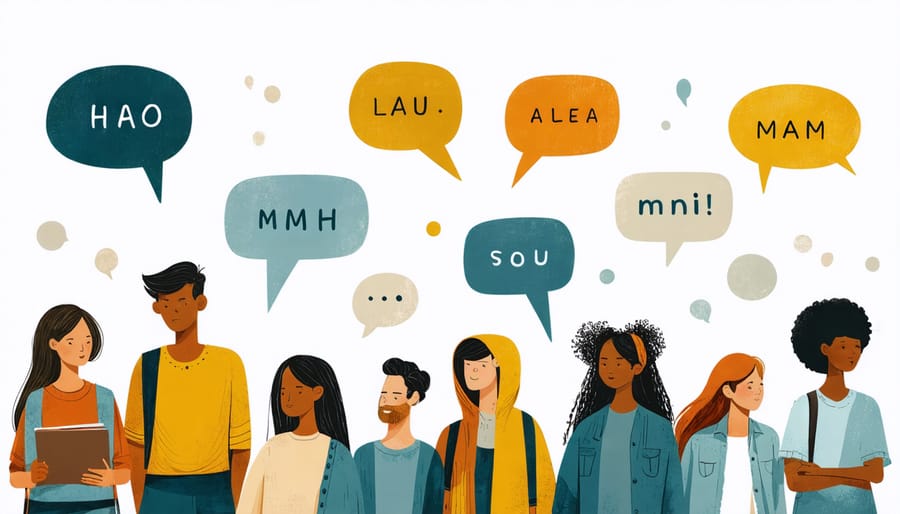Culture shapes our understanding of mental health in profound ways. From the beliefs we hold about what constitutes “normal” behavior to the support systems we rely on during times of distress, cultural factors play a critical role in shaping our psychological well-being. Yet far too often, discussions about mental health neglect the powerful influence of culture, leading to misunderstandings, stigma, and inadequate care for those who need it most. In this article, we will explore the complex interplay between culture and mental health, shedding light on how our cultural backgrounds shape our perceptions of psychological distress, influence our coping strategies, and impact our access to effective treatment. By understanding these cultural influences, we can work towards building a more inclusive, compassionate approach to mental health that respects the diverse needs and experiences of individuals from all walks of life.

Cultural Beliefs and Attitudes
Stigma and Taboo
In many cultures, mental health issues are heavily stigmatized, viewed as a sign of weakness, moral failure, or even supernatural forces. This deep-rooted stigma can make individuals and families hesitant to acknowledge mental health struggles, let alone seek professional help. They may fear being ostracized, shamed, or discriminated against within their communities. Some cultures may also have a limited understanding of mental health, attributing symptoms to personal shortcomings rather than treatable conditions.
This stigma is particularly harmful for children, as it can prevent parents from recognizing signs of distress and seeking early intervention. Kids may internalize these negative attitudes, feeling ashamed or alone in their struggles. It’s crucial for parents, educators, and healthcare providers to challenge these cultural stigmas head-on. By openly discussing mental health, sharing personal stories, and emphasizing that seeking help is a sign of strength, we can create a more supportive environment for children’s well-being. With increased awareness and compassion, we can stigmatize mental health issues and ensure that every child feels safe and supported in their journey towards healing and resilience.
Resilience and Coping Strategies
Different cultures have unique practices and traditions that can help foster resilience and provide healthy ways to cope with life’s challenges. For instance, many communities place a strong emphasis on social support and connectedness. Extended family networks, religious groups, and tight-knit neighborhoods can offer a sense of belonging and provide emotional and practical assistance during difficult times. Cultural practices like storytelling, music, art, and dance can also serve as powerful outlets for self-expression and healing. They allow individuals to process emotions, find meaning in adversity, and maintain a sense of identity and continuity with their heritage. Moreover, certain cultural beliefs and values, such as a focus on gratitude, acceptance, perseverance, and finding purpose in life, can help reframe challenges as opportunities for growth and resilience. By drawing strength from these cultural resources and incorporating them into mental health interventions, we can help children and families develop the skills and mindset needed to navigate life’s ups and downs with greater ease and adaptability.
Family Dynamics and Support Systems
Family dynamics and support systems play a crucial role in shaping mental health outcomes, and cultural factors significantly influence these relationships. In collectivistic cultures, such as many Asian and Latin American societies, family ties are often prioritized over individual needs. This strong sense of familial obligation can provide a robust support network, buffering against stress and promoting resilience. However, it can also lead to increased pressure to conform to family expectations, potentially exacerbating mental health issues.
In contrast, individualistic cultures, like those found in many Western countries, tend to emphasize personal autonomy and independence. While this can foster self-reliance and assertiveness, it may also result in a lack of social support during times of distress. Research has shown that individuals from individualistic cultures are more likely to seek professional help for mental health concerns, whereas those from collectivistic backgrounds often rely on family and community support first.
Cultural norms surrounding communication styles and emotional expression also impact family structure, relationships, and support systems. In some cultures, openly discussing mental health struggles may be taboo, leading to feelings of isolation and shame. On the other hand, cultures that encourage open dialogue and emotional vulnerability can create a more supportive environment for those facing mental health challenges.
Ultimately, understanding the complex interplay between culture, family dynamics, and support systems is essential for promoting mental well-being across diverse populations. By fostering culturally sensitive approaches to family communication, emotional expression, and help-seeking behaviors, we can create more inclusive and effective mental health support for individuals and communities worldwide.


Cultural Identity and Sense of Belonging
Having a strong sense of cultural identity and belonging can be a powerful protective factor for mental health, especially during the formative years of childhood and adolescence. When young people feel deeply connected to their cultural heritage, traditions, and community, it provides a vital source of stability, meaning, and self-esteem.
Research has shown that children who have a positive relationship with their cultural background tend to have better mental health outcomes. They are more resilient in the face of stress and adversity, have higher self-esteem, and are less likely to engage in risky behaviors. A strong cultural identity can also help children develop a clearer sense of self and purpose, which is essential for healthy psychological development.
On the other hand, when children feel disconnected from or ashamed of their cultural heritage, it can lead to feelings of isolation, confusion, and low self-worth. This is particularly true for minority youth who may face discrimination or pressure to assimilate into the dominant culture. Studies have found that ethnic minority youth who experience cultural alienation are at higher risk for depression, anxiety, and substance abuse.
Fostering a strong cultural identity and sense of belonging starts in the family and community. Parents can help by teaching children about their cultural history, values, and traditions, and by modeling pride in their heritage. Schools and community organizations also play a vital role by creating inclusive environments that celebrate diversity and promote cross-cultural understanding.
Ultimately, embracing one’s cultural identity is not about separating oneself from the broader society, but about finding a healthy balance between honoring one’s roots and engaging with the world at large. When young people feel grounded in who they are and where they come from, they are better equipped to navigate life’s challenges with confidence and resilience.
Access to Mental Health Services
Culture can significantly impact access to mental health services. Many communities face barriers such as stigma, language differences, and mistrust of healthcare systems, which can prevent individuals from seeking help. For example, in some Asian cultures, mental illness may be seen as a sign of weakness or shame, leading to reluctance to discuss mental health concerns openly. Similarly, Indigenous communities may prefer traditional healing practices over Western approaches, making it crucial for providers to offer culturally sensitive care.
To improve access to mental health services, it’s essential to develop culturally competent programs that address the unique needs and beliefs of diverse populations. This involves training mental health professionals to be aware of cultural differences, providing language interpreters, and collaborating with community leaders to build trust and reduce stigma. Integrating traditional healing practices alongside evidence-based treatments can also make services more accessible and acceptable to diverse communities.
Furthermore, increasing representation of mental health providers from diverse backgrounds can help bridge cultural gaps and create a more welcoming environment for those seeking care. Outreach programs that educate communities about mental health and available resources are also crucial in breaking down barriers and promoting help-seeking behaviors. By prioritizing culturally sensitive approaches, we can work towards ensuring that all individuals, regardless of their cultural background, have access to the mental health support they need to thrive.
Conclusion
The influence of culture on mental health is a complex and multifaceted issue that requires greater awareness, sensitivity, and understanding. Throughout this article, we have explored how cultural beliefs, family dynamics, identity, and access to mental health services can significantly impact an individual’s psychological well-being. It is clear that a one-size-fits-all approach to mental health is insufficient, as cultural factors play a crucial role in shaping perceptions, experiences, and coping mechanisms.
To effectively address mental health challenges, it is essential for healthcare professionals, educators, and community leaders to develop cultural competence and adopt culturally-responsive practices. This involves actively listening to and learning from diverse communities, acknowledging and respecting cultural differences, and tailoring mental health interventions to meet the unique needs of individuals and families.
Moreover, we must work towards dismantling the stigma surrounding mental health issues within various cultural contexts. By fostering open dialogue, promoting education, and encouraging help-seeking behaviors, we can create a more supportive and inclusive environment that prioritizes mental well-being for all.
As we move forward, let us embrace the richness and diversity of our cultural tapestry while recognizing the profound influence it has on our mental health. By working together with empathy, understanding, and a commitment to cultural sensitivity, we can build a world where every individual, regardless of their cultural background, can access the support they need to thrive.







